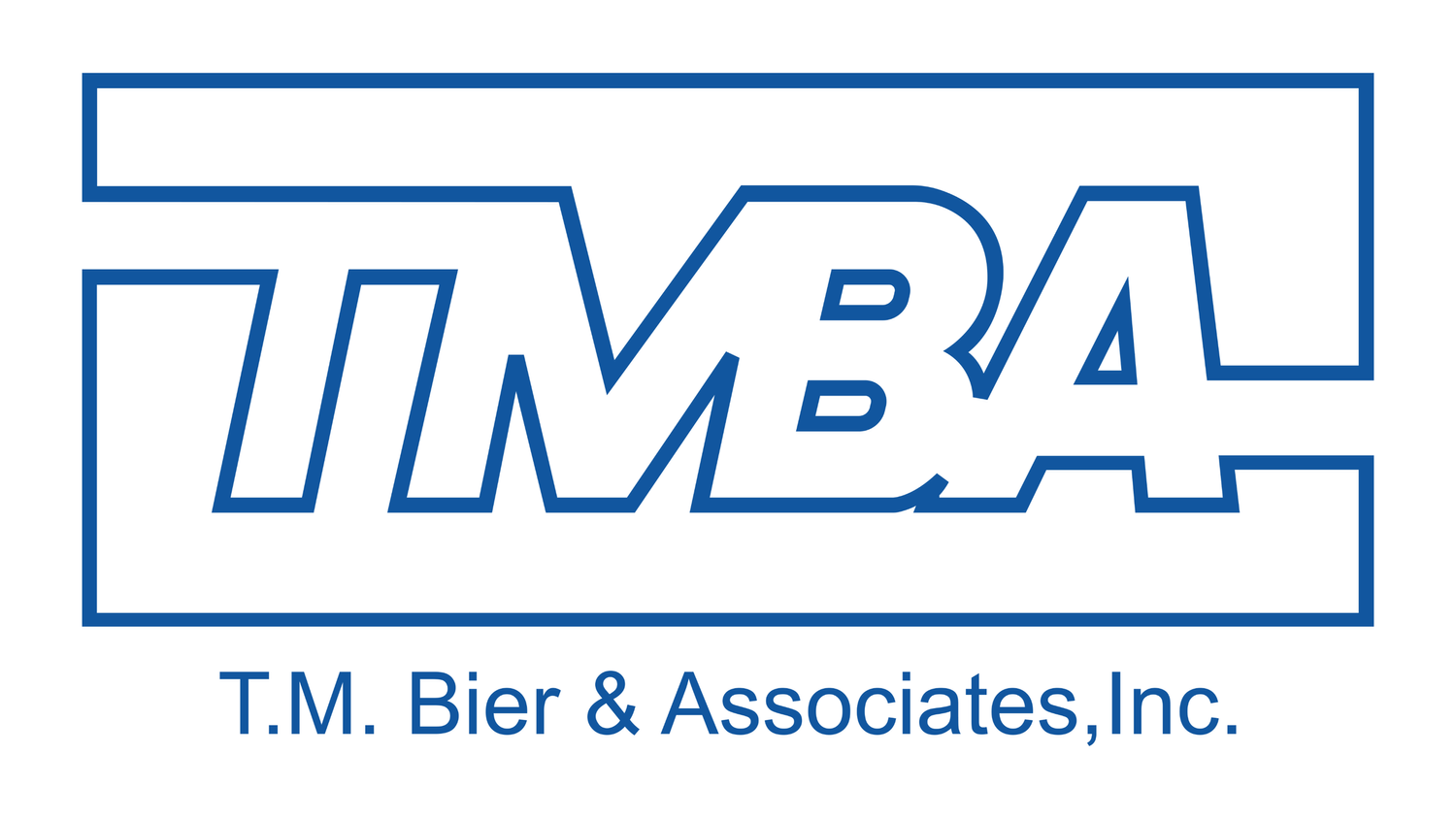
TMBA BLOG
Getting the Most Out of Your BMS Energy Dashboard
In today’s high-performance buildings, energy dashboards are everywhere. Whether you’re in a brand-new facility or a decades-old retrofit, chances are your Building Management System (BMS) gives you a screen full of graphs, charts, and numbers—maybe even on your phone. But what is all that information really telling you? More importantly: how do you use it to run your building better?
Maximizing Building Performance through Valve Integration in BMS
In the realm of building management, achieving operational excellence requires a keen understanding of how each component interacts within the ecosystem of a Building Management System (BMS). At T.M. Bier & Associates (TMBA), we specialize in enhancing building efficiency and functionality through the strategic integration of valves and other HVAC components into BMS. This detailed exploration showcases the critical role valves play in various systems and the amplified benefits their integration into a BMS offers, reinforcing the importance for building managers and facility engineers.
Discover TMBA's Manhattan Office: A Hub of Excellence in the Heart of NYC
Welcome to TM Bier & Associates' (TMBA) Manhattan office, a strategic addition to our growing presence in the New York metropolitan area. Located in the iconic Rockefeller Center at 600 5th Ave, Floor 2, New York, NY 10020, our Manhattan office is a testament to our commitment to serving our clients with excellence, convenience, and efficiency.
TMBA's Retrofit of 55 Water Street's Building Management System in New York City
In the heart of New York City's Financial District stands the massive structure of 55 Water Street. Not just notable for its size and history, this behemoth of a building has also been at the forefront of technological advancements in building management systems (BMS). And when it was time to say goodbye to the old Honeywell BMS, T.M. Bier & Associates (TMBA) stepped up to provide a state-of-the-art solution.
New Life for Aging Facilities: Four Strategies for Future-Proofing Older Buildings
A top priority for building owners and managers of aging buildings is to create a competitive, productive, and efficient environment for their tenants. This is a challenge because in these older facilities – whether they are office buildings, hotels, or educational institutions – the infrastructures and systems are often outdated and inadequate. Consequently, maintenance and operations costs are high, space utilization is inefficient and poorly managed, and innovative technology is lacking. This blog post explores four strategies for converting existing facilities into smart buildings that efficiently and cost-effectively address the current and future needs of demanding tenants.
Breathe New Life into Your Buildings: The In-depth Guide to BMS Retrofitting
As the lifeline of modern infrastructures, Building Management Systems (BMS) are essential for orchestrating the diverse, often complex, operations within buildings. They enable functionality, efficiency, and comfort, serving as the central nervous system of any edifice. However, like all systems, a BMS is not impervious to time and technological advancements. As they age, these systems can become less efficient, unable to meet contemporary standards or leverage new technologies. Read more.
Decoding the Basics of Building Management System Design
As businesses and industries evolve, the need for more integrated, efficient, and sustainable infrastructure becomes increasingly clear. At the heart of this shift is the adoption of sophisticated Building Management Systems (BMS), designed to oversee and optimize the performance of a facility's mechanical and electrical systems. In this blog post, we will unravel the basics of BMS design and how T.M. Bier & Associates can help create a streamlined, energy-efficient, and future-ready establishment for your business.
A Beginner’s Guide To Building Management Systems
In this article, we will explore what chillers and chiller management systems are, their interaction with BMS, and how a BMS integrator can enhance the control and efficiency of a building's systems. Read more.
Integrating Chillers with Building Management Systems: Unleashing the Power of Your HVAC
In this article, we will explore what chillers and chiller management systems are, their interaction with BMS, and how a BMS integrator can enhance the control and efficiency of a building's systems. Read more.
Smarter Buildings: The Power of A.I. in Building Management Systems
In this blog post, we delve into the extraordinary impact of AI on building management systems, exploring how it reshapes the future of the industry. With advanced data analytics, machine learning algorithms, and predictive modeling, AI empowers BMS to become highly intelligent, proactive entities.
Building Management System Maintenance: What Is It?
Building Management Systems (BMS), in their essence, serve as an intelligent network of interconnected devices and wiring that collectively govern the operational efficiency of a building. The term "BMS Maintenance," however, is often shrouded in misconceptions. Many people picture a technician with a toolkit, busily conducting mechanical maintenance on the system. In reality, the concept of BMS maintenance is more nuanced and technology-driven.
Building Management System (BMS) Technicians: The “Building Detectives”
When there is a complaint about one room in the building being hotter or cooler than the rest of the building, BMS Technicians have to act like detectives to decode the problem. They need to understand the building's many integrated systems and the components within them. This requires a level of knowledge and experience that goes beyond what many other building professionals possess.
Flexible Buildings: 5 Elements To Create Buildings ready for the new world of work
The coronavirus crisis has been more than just a short-term shock to the system. It has prompted a profound long-term rethink of what office buildings are really for, and how they should perform in the future. With more flexible work patterns, flexible teams and flexible organisations, should we not also demand more flexible buildings? But what do we mean by a flexible building? How can we define its key attributes? What are the key benefits of developing a flexible building and how can real estate professionals go about delivering one? These are the questions that this report sets out to answer.
Optimizing Steam Systems With Building Management Systems
Steam systems are a crucial part of many buildings, providing heat, hot water, and even power in some cases. However, these systems can be quite complex and can require a significant amount of energy to operate. This is where building management systems (BMS) come into play.
Optimizing Building Performance with a Building Management System & HVAC Controls
HVAC controls are an important component of building management systems, as they help to regulate the temperature, humidity, and air quality. The integration of these controls into a BMS can lead to energy efficiency, cost savings, improved comfort, and increased safety. The integration of HVAC controls into a building management system has a number of benefits:
Aging BMS’s put your building & business at risk – start your modernization plan today
BMS modernization can be done in manageable steps that optimize your investment while maximizing the benefits. Choosing the best time to do this upgrade can help. This should be done well before the end of its lifecycle, enabling an incremental upgrade that extracts the greatest lifespan, keeps the software up to date, gains performance enhancements, and protect against cyberattacks.
EcoStruxure™ Workplace Advisor
SE’s EcoStruxure Workplace Advisor is a suite of digital services for building managers to create smart workplaces that optimize the use of space, improve comfort, enhance productivity, and reduce facility service costs. Users can derive actionable insights through intuitive dashboards that analyze data from Internet of Things (IoT) devices and systems. Learn more from TMBA.
Building Management Systems vs. Building Automation Systems: What’s The Difference?
What Are Building Control Systems? Almost every commercial & residential building including skyscrapers, office buildings, multi-family buildings, warehouses, manufacturing plants, etc. uses some form of technology to manage their building’s energy efficiency, security, & more. More advanced technology enables building managers to control all of their building’s systems from one remotely accessible control panel. This […]
Upgrading Your Building Management System In NYC
There are more than one million buildings in New York City, 299 of them being skyscrapers. We estimate that 70-80% of these commercial & residential buildings are due for a building management system upgrade, or will be soon.



















